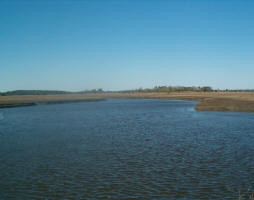 Session outline
Session outline
| Released | 30/03/2006 |
|---|
| Details of the session | Details of the conveners | ||
| Final title of the session: | First convening organization: WMO Commission for Hydrology | ||
| Information in support of Integrated Water Resources Management |
Main contact person: Bruce James Stewart, Assistant
Director (National Operations) |
||
| E-mail address: email | |||
| Framework theme: | Second convening organization: SEMIDE (EMWIS) | ||
| Implementing Integrated Water Resources Management | Second
contact person: Eric Mino, Manager and
coordinator of the EMWIS Technical Unit |
||
| Crosscutting perspective(s): |
E-mail
address: email |
||
| Capacity-building and Social Learning;
Application of Science, Technology and Knowledge; Targeting, Monitoring
and Implementation Assessment |
Third convening organization: Australian Bureau of Meteorology | ||
| Objective and expected output of the session : | |||
| The objective of the session is to
demonstrate the importance of data and information (climate and water) to
sustainable water resources management and food production. Good
practice examples of how collaborative frameworks and information
networks are key elements in building communities of practitioners,
carrying-out regional policy dialogue and developing new joint
initiatives will be presented. The main success criteria and also the
difficulties encountered in order to transfer know-how to other regions
and countries will be highlighted. Current initiatives to address these
issues will be described at regional and national levels (EMWIS, WHYCOS,
etc.) and make significant use of local case studies. The expected outputs from the session include: • the exchange of knowledge and experiences among different regions and promotion of new techniques that will assist in sustainable management of water resources and improved food production; and • the identification of new initiatives aimed at enhancing the capacity of less developed countries to establish and maintain information bases on which to manage their water resources in a sustainable manner. |
|||
| Draft key recommendations related to strengthening local action implementation in the field of the session: | |||
| • Reliable water and climate information
systems are necessary for an integrated management of water
resources; • More cooperation is required to define common standards to be used by any organisation willing to set-up a water information system, allowing a smooth integration in a broader system at a later stage; and • Awareness raising of the political and technical persons in charge of water management for a consistent and comprehensive approach to the data and information needed for IWRM. |
|||
 you are not logged in
you are not logged in





